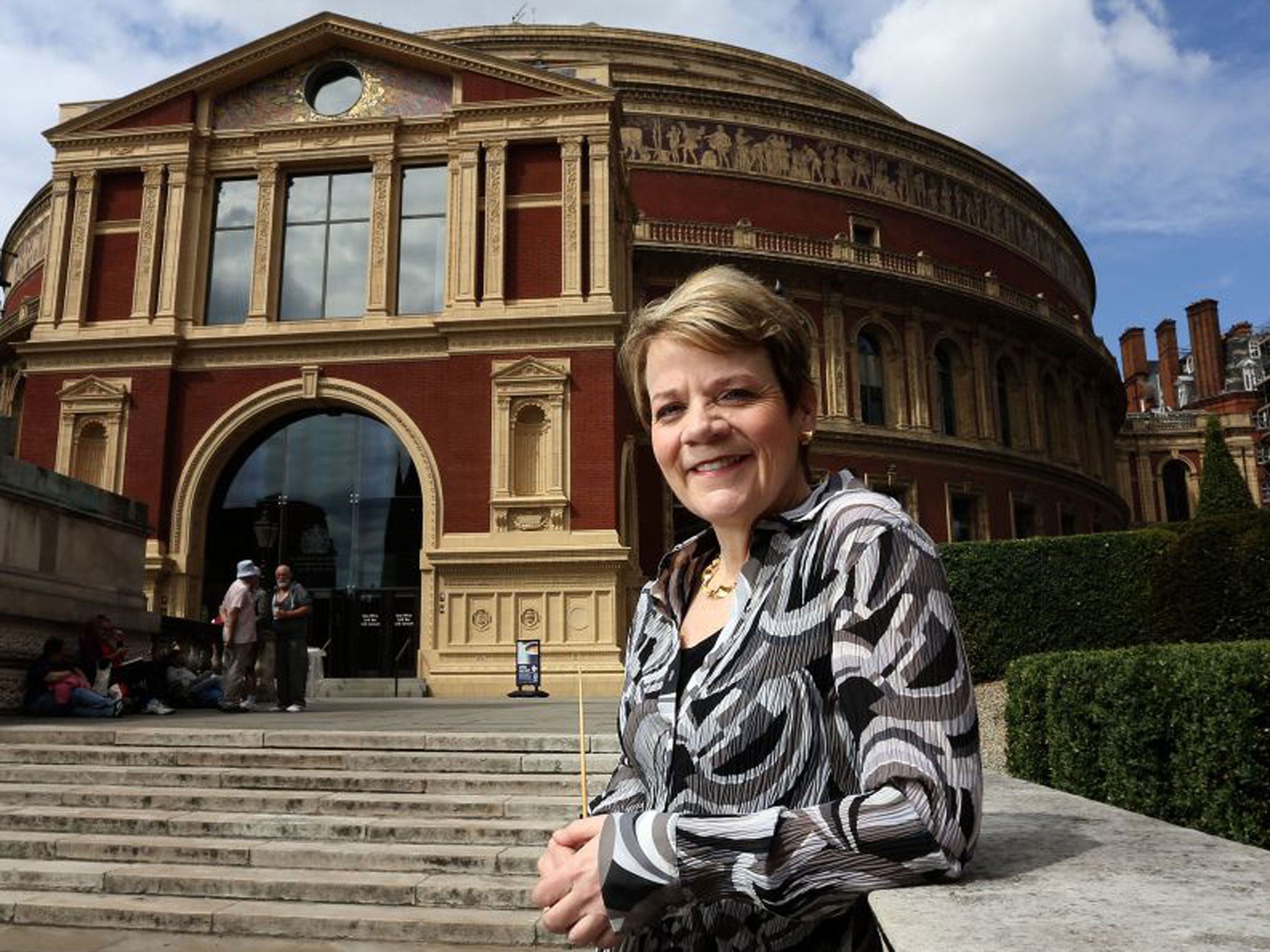With a little bravery Marin Alsop could conduct this Last Night of the Proms into a new era


Tonight is the Last Night of the Proms. And, as we all know by now, Marin Alsop will become the first woman to conduct at the most famous night of classical music in the calendar. That already puts her in the history books. But I’d like to see her go into the history books, or at least into tomorrow’s papers, for a further reason.
The Last Night isn't different only because of Jerusalem, Land of Hope and Glory and flag-waving. It is unusual because of the tradition hat the conductor actually makes a short speech. A conductor talking to the audience - that's a rarity all right. A conductor saying something newsworthy to the audience would be even more of a rarity. But this is the night that it could and should happen.
In the past these Last Night addresses have usually consisted of bonhomie, jokes and the odd platitude. That's a waste. The Last Night isn't only broadcast on TV, it is now also relayed to vast audiences in Hyde Park and other venues across the United Kingdom. Never again will Ms Alsop have such an audience. I don't mean that she should broadcast her views on Syria, the Coalition government or HS2. That's not what we want from a conductor.
But she should make some trenchant statements about her art form and about the Last Night of the Proms. On the latter I would like her to declare there is nothing wrong with the patriotism that the Last Night embodies. While it so often makes the arts world a little uncomfortable - only this week former Proms director Sir Nicholas Kenyon said the Last Night used to be "dangerously English" - culture and patriotism need not be mutually exclusive.
She should, of course, highlight the plight of gay artists in Russia. Then she could turn to the state of classical music and assert that it has to do more to widen the demographic of its audience. She could welcome the recent experiment in a week of concerts in Bristol, where there were screens and light shows. She should call on government to increase urgently both peripatetic music teaching in schools and school visits to concerts. She should challenge television, not least her host for the evening the BBC, to show more classical music in those 10 months when the Proms are not on.
And on this night of being the first woman at the helm, she should look abroad and name and shame those world famous orchestras in Germany and Austria which have almost no women in their ranks. Then, in a stinging conclusion she should give her view, with no expletives deleted, of fellow conductor Vasily Petrenko of the Royal Liverpool Philharmonic, who has opined that female conductors distract male musicians.
The music tonight will undoubtedly be memorable. But the speech could be unforgettable.
* Recently on this page I argued that town centres should have more statues (any statues!) of cultural figures. Readers have come up with a number of responses. Some express surprise that there is no statue of Dickens in London (though there is one in Portsmouth...and Philadelphia!).
Josephine Eaton from Derby wants a statue of Nottingham's Alan Sillitoe, author of Saturday Night and Sunday Morning, in his home city. Gavin Brown from Linlithgow points out that Scotland can teach England something. In Edinburgh's Princes Street there is the Scott Monument, probably the largest monument in the world to an author and the centrepiece of the edifice at ground level is a statue of Sir Walter Scott. Scott also dominates George Square in Glasgow.
There is also a statue of Scott in Selkirk where he worked as Sheriff Clerk. There are statues to Robert Burns in various places, most notably Dumfries where he died. In Edinburgh, too, you will find statues in Princes Street gardens of Robert Louis Stevenson and the less well-known Allan Ramsay.
On the Royal Mile there is a statue of David Hume. Bob and Rose Sandham from Hull fly the flag for England, or at least for Hull, saying that the city boasts statues of two remarkable poets: Andrew Marvell in the old town and Philip Larkin on the railway station concourse. The north shows the way.
* It's not just statues that can commemorate great cultural figures. Each year at this time I watch the U.S. Open Tennis on TV and love it when they show a match from the Louis Armstrong court. A tennis court at a grand slam arena named after one of the country's cultural icons! It makes Wimbledon's number one court sound a bit prosaic. Centre Court is steeped in tradition and it's a name that shouldn't be altered. But number one could be a little more arty. And now it's over to Murray versus Nadal on Elton John... or Virginia Woolf... or Laurence Olivier. Why not?

Join our commenting forum
Join thought-provoking conversations, follow other Independent readers and see their replies